Engaging in Scuba diving, freediving, or snorkeling offers profound benefits for mental and emotional well being by fostering mindfulness, boosting mood, strengthening self-esteem, and forging deep social connections beneath the waves.
For beginners stepping into this underwater universe, diving provides more than adventure-it delivers a sanctuary for the mind and heart that can fundamentally transform how you experience stress, anxiety, and overall mental wellness.
The Science of Diving's Therapeutic Effects
The Blue Mind Phenomenon
Marine biologist Dr. Wallace J. Nichols coined the term "Blue Mind" to describe the mildly meditative state people experience when near, in, on, or under water. This neurobiological response triggers profound changes in brain chemistry that promote relaxation and well-being.
When you descend beneath the surface, your brain encounters a simplified sensory environment. The consistent blue hues and gentle sounds of bubbles create what researchers call "involuntary attention"-a state where your mind can focus without effort. This environment stimulates the release of key neurotransmitters: dopamine (the feel-good hormone), serotonin (the happiness hormone), and oxytocin (the bonding hormone), while simultaneously reducing cortisol levels associated with stress.
The visual impact of endless blue horizons creates what scientists describe as a "cognitive symphony" that promotes mental clarity and emotional balance. Studies show that exposure to blue spaces has measurable effects on reducing anxiety and enhancing creativity, making diving a natural form of therapy for modern stress.
Breathing Under Pressure
One of diving's most powerful therapeutic mechanisms lies in its requirement for controlled, rhythmic breathing. Unlike surface breathing, underwater respiration demands deep diaphragmatic breaths that naturally activate the parasympathetic nervous system-your body's "rest and digest" mode.
This controlled breathing pattern mirrors techniques used in meditation and yoga, creating similar neurological benefits. Research from the University of Sheffield Medical School demonstrates that divers experience significant reductions in anxiety and stress hormones through this forced mindful breathing. The rhythmic nature of breathing underwater-inhale to rise slightly, exhale to descend-creates a natural biofeedback loop that teaches your body to self-regulate stress responses.
Veterans in therapeutic diving programs report that the deep breathing techniques learned underwater naturally transfer to daily life, providing them with powerful tools for managing anxiety and stress in civilian settings. This breathing-based therapy proves particularly effective because it combines physical necessity with mental training.
Weightlessness and Buoyancy
The sensation of neutral buoyancy underwater creates a unique therapeutic environment that cannot be replicated on land. This weightless state provides immediate physical relief from joint pain, muscle tension, and the constant gravitational stress your body experiences daily.
For individuals dealing with physical injuries or chronic pain, the buoyancy of water reduces spinal compression and allows for pain-free movement. Veterans with combat injuries report that underwater weightlessness offers the first respite they've experienced from constant physical discomfort, creating space for mental healing to occur.
The psychological impact of weightlessness extends beyond physical relief. Floating in three-dimensional space fundamentally alters your relationship with your body and environment, fostering a sense of freedom and control that many find transformative. This unique sensory experience helps break negative thought patterns and provides a fresh perspective on life challenges.
Stress Reduction and Anxiety Relief
Mindfulness through Focused Breathing
Diving naturally cultivates mindfulness by demanding present-moment awareness. Unlike surface activities where your mind can wander, underwater environments require constant attention to breathing, buoyancy, and surroundings. This forced mindfulness creates what researchers call "flow state"-a condition where anxiety dissolves and mental clarity emerges.
The meditative quality of diving stems from its unique combination of sensory simplification and heightened awareness. Underwater, distracting noises fade away, replaced by the rhythmic sound of your own breathing and gentle water movement. This auditory environment naturally calms the nervous system and promotes introspective thinking.
Studies on adaptive scuba diving programs for veterans reveal remarkable results: participants report immediate improvements in concentration, decreased mind-wandering, and enhanced ability to stay present. One veteran described the experience: "My mind doesn't wander at all... I can kind of concentrate on myself and think about me when I'm down there."
Immersion in Blue Spaces
Research consistently demonstrates that exposure to "blue spaces"-oceans, lakes, and underwater environments-produces measurable mental health benefits. The PADI Deptherapy program for military veterans shows particularly compelling results, with participants experiencing significant reductions in PTSD symptoms, depression, and anxiety after engaging in structured diving activities.
A comprehensive study published in the Journal of Veterans Studies found that veterans participating in scuba diving programs reported profound improvements in emotional regulation. Participants described being able to stay calm in situations that would normally trigger agitation, with effects lasting long after the dive concluded. One participant noted: "Even remembering back to the dive... if you're feeling a little agitated or whatever, that can bring you back to just calm and happy."
The therapeutic power of blue spaces extends beyond immediate stress relief. Regular exposure to underwater environments helps rewire stress response patterns, creating long-term resilience against anxiety and depression.
Data-Driven Outcomes
Scientific research validates diving's mental health benefits through rigorous study. The University of Sheffield Medical School conducted groundbreaking research showing that scuba diving provides measurable therapeutic benefits for individuals with anxiety, depression, and social dysfunction.
In a controlled study of 176 divers and 70 beach users, researchers found that both groups experienced significant mood improvements, but individuals taking regular medication for chronic psychiatric conditions showed the most dramatic benefits. The study concluded that both beach and scuba diving activities have positive effects on mental health, particularly for those already managing mental health challenges.
Deptherapy studies demonstrate that adaptive scuba diving creates lasting improvements in veterans' psychological well-being. Participants showed statistically significant increases in mindfulness and contentment levels, with effects being most pronounced among those dealing with mental or physical health issues. The research revealed medium to large effect sizes, indicating clinically meaningful improvements in mental wellness.
Boosting Mood and Mental Clarity
Endorphin Release from Physical Activity
Scuba diving combines gentle cardiovascular exercise with strength training, creating an ideal environment for natural endorphin production. Unlike high-intensity workouts that can increase stress hormones, diving's moderate physical demands stimulate feel-good chemicals without triggering fight-or-flight responses.
The unique physical aspects of diving-swimming against gentle currents, maintaining core stability for buoyancy control, and maneuvering through three-dimensional space-engage multiple muscle groups while promoting cardiovascular health. Research shows that this combination of physical activity with deep breathing creates sustained mood elevation that can last for hours or days after diving.
Studies tracking neurotransmitter levels in divers reveal interesting patterns: while dopamine levels may initially decrease due to nitrogen narcosis at depth, the overall diving experience produces lasting increases in serotonin and oxytocin that promote sustained happiness and social bonding.
Visual Meditation of Marine Life
The underwater world provides a natural form of visual meditation that captivates attention while calming the mind. Observing colorful coral reefs, graceful sea life, and the interplay of light and water creates what psychologists call "awe experiences"-moments that expand consciousness and reduce negative self-focus.
This visual therapy proves particularly powerful for individuals struggling with anxiety or depression. The constant movement and color changes underwater provide gentle stimulation that keeps the mind engaged without overwhelming it. Many divers report that watching fish swim or observing coral formations creates a sense of wonder and connection that lifts mood and provides perspective on life challenges.youtube
The therapeutic value of marine wildlife observation extends beyond simple distraction. Research suggests that experiencing natural beauty triggers specific neural pathways associated with contentment and life satisfaction. This explains why even brief snorkeling sessions can produce lasting mood improvements.
Building Confidence and Self-Esteem
Mastering Diving Skills
Learning to dive requires conquering fundamental human fears-fear of drowning, fear of the unknown, and fear of losing control. Successfully overcoming these challenges creates profound confidence gains that transfer to other life areas.
The progressive nature of dive training builds self-efficacy through manageable challenges. Beginning with shallow-water skills and gradually advancing to deeper, more complex diving scenarios, students develop a sense of mastery and competence that boosts overall self-esteem. Each certification level achieved-from Open Water to Advanced to specialty courses-represents concrete proof of personal growth and capability.
Dive instructors report that students often experience transformational confidence shifts during their training. The moment when a nervous beginner successfully demonstrates buoyancy control or calmly handles a mask flooding situation often marks a turning point in their self-perception. These underwater victories create lasting confidence that extends far beyond diving.
Personal Stories of Triumph
Reddit diving communities overflow with testimonials from divers who credit scuba with transforming their mental health. One particularly compelling story describes a diver who overcame severe panic attacks through diving: "Scuba has changed my mental health for good (and for the better)." They describe how learning to control breathing and stay calm underwater taught them tools for managing anxiety on land.
Technical divers often report that mastering complex underwater challenges-managing multiple gas mixes, navigating challenging environments, or executing precise buoyancy control-creates unshakeable confidence in their ability to handle life's challenges. The skills learned underwater-staying calm under pressure, methodical problem-solving, and trusting in preparation and training-prove invaluable in professional and personal contexts.
Veterans in therapeutic diving programs frequently describe their certification achievements as turning points in their recovery journey. Successfully completing dive training provides tangible evidence of their continued capability and worth, countering negative self-perceptions that often accompany trauma and depression.
Social Connections and Community Support
Buddy System and Trust
The buddy system fundamental to safe diving creates unique opportunities for building trust and meaningful relationships. Unlike surface activities where you can succeed alone, diving requires interdependence that fosters deep connections between dive partners.
Learning to rely on a dive buddy-and accepting responsibility for their safety in return-develops emotional intimacy rarely achieved in casual relationships. Dive buddies must communicate effectively underwater using hand signals, share air in emergencies, and provide mutual support throughout each dive. This shared responsibility creates bonds that often extend far beyond diving.
Dive clubs and organizations provide natural communities for individuals seeking connection. The British Sub-Aqua Club (BSAC) and similar organizations worldwide offer structured environments where divers can find like-minded individuals, participate in group activities, and develop lasting friendships. For individuals struggling with loneliness or social anxiety, dive communities provide accepting, supportive environments for building social skills.
Global Diving Networks
The international diving community creates opportunities for connection that transcend geographic and cultural boundaries. Programs like PADI Torchbearers and conservation initiatives bring divers together around shared values of ocean protection and environmental stewardship.
Veterans' diving organizations create particularly powerful support networks. Groups like Undersea Warriors, Dive Guardians, and Deep Sea Valkyries provide specialized communities where former service members can connect with others who understand their unique challenges. These organizations combine diving activities with peer support, creating comprehensive networks for healing and growth.
Conservation diving initiatives offer additional opportunities for meaningful connection. Participating in reef restoration projects, underwater cleanups, or marine research provides divers with shared purpose that strengthens community bonds while contributing to environmental protection.
Therapeutic Diving Programs
Adaptive Scuba for Veterans
Specialized programs like PADI Deptherapy demonstrate diving's therapeutic potential through structured interventions for veterans with PTSD, depression, and anxiety. These programs combine adaptive diving instruction with occupational therapy, creating comprehensive treatment approaches that address both physical and mental health challenges.
Research on veteran diving programs reveals remarkable outcomes. A study of 28 veterans participating in adaptive scuba diving showed significant improvements in mindfulness and contentment levels after just single 45-minute sessions. Veterans with mental health diagnoses showed the largest improvements, with effect sizes indicating clinically meaningful changes in psychological well-being.
Organizations like Wounded Waters use diving as "saltwater therapy" to combat veteran suicide rates and depression. Their programs recognize that traditional talk therapy isn't effective for all veterans, offering diving as an alternative pathway to healing that addresses trauma through physical activity and community connection.
Programs for Physical Rehabilitation
Adaptive diving programs serve individuals with various physical disabilities, using water's buoyancy to enable movement and activity that might be impossible on land. The weightless environment allows individuals with spinal cord injuries, amputations, or traumatic brain injuries to experience freedom of movement and physical capability.
Patriots for Disabled Divers and similar organizations provide specialized equipment and training that make diving accessible to individuals with diverse physical challenges. These programs often report that participants experience not only physical benefits but significant improvements in mood, self-esteem, and outlook on life.
The combination of physical rehabilitation with community support creates powerful healing environments. Participants often describe feeling "normal" again underwater, where physical limitations become less relevant and capabilities become the focus.
Accessibility for Non-Divers
Snorkeling and Freediving as Alternatives
You don't need full scuba certification to experience diving's mental health benefits. Snorkeling provides many of the same therapeutic effects through shallow-water exploration, making it accessible to individuals who cannot pursue scuba diving due to medical, financial, or logistical constraints.
Freediving offers another pathway to underwater therapy, combining breath-hold techniques with underwater exploration. The intense focus required for breath-holding creates powerful mindfulness experiences, while the challenge of extending underwater time builds confidence and mental resilience.
Both snorkeling and freediving require minimal equipment and training compared to scuba diving, making them excellent entry points for individuals interested in exploring diving's therapeutic benefits. Many people discover that even brief underwater experiences provide significant stress relief and mood improvement.
Virtual Reality and Guided Imagery
Emerging technologies make diving's therapeutic benefits accessible even to individuals who cannot physically enter the water. VR diving simulations create immersive underwater experiences that trigger similar neurological responses to actual diving. While not identical to real underwater experiences, VR environments can provide blue mind benefits for individuals with physical limitations or geographical constraints.
Ocean-themed guided meditations incorporate underwater imagery and sounds to create therapeutic experiences that mimic diving's calming effects. These audio-based interventions prove particularly useful for individuals seeking diving's stress-relief benefits between actual dive trips.youtube+2
Meditation apps increasingly feature underwater soundscapes-the rhythmic sounds of breathing apparatus, gentle bubble streams, and underwater ambiance-that help users access diving's meditative qualities from anywhere.
Incorporating Diving into Daily Wellness
"Blue Mind" Beyond the Ocean
The principles underlying diving's therapeutic effects can be accessed in daily life through blue space interactions. Simple activities like cold-water swimming, taking baths while focusing on breathing, or even listening to underwater soundscapes can trigger similar neurological responses to diving.
Urban dwellers can incorporate blue mind practices by visiting local pools, lakes, or water features while practicing mindful breathing. The key lies in combining water exposure with intentional breathing and present-moment awareness. Even brief interactions with water-such as mindful hand-washing or drinking water meditation-can provide small doses of diving's calming effects.
Beach walking while focusing on wave sounds and oceanic breathing patterns helps maintain the mental health benefits between diving sessions. Many divers report that these practices help sustain the peace and clarity they experience underwater.
Planning Your First Dive Trip
For beginners interested in experiencing diving's therapeutic benefits, careful planning ensures positive first experiences. Start by researching beginner-friendly dive locations with calm conditions, good visibility, and reputable dive operators who prioritize safety and comfort.
Essential gear considerations for therapeutic diving include a well-fitting mask (crucial for comfort and confidence), appropriate thermal protection to prevent distraction from cold, and a reliable dive computer for monitoring depth and time. Investing in personal gear, especially mask and fins, helps build familiarity and confidence.
Consider beginning with Discover Scuba Diving programs that provide supervised underwater experiences without full certification requirements. These introductory programs allow you to experience diving's mental health benefits while determining whether to pursue full certification.
Choose dive operators and instructors who understand and respect diving's therapeutic potential. Look for programs that emphasize mindfulness, stress reduction, and personal growth rather than just technical skills.
Quick Takeaways
-
Diving promotes mindfulness through required present-moment awareness and controlled breathing, naturally reducing anxiety and stress.
-
Deep breathing underwater activates the parasympathetic nervous system, creating lasting improvements in stress management and emotional regulation.
-
The Blue Mind effect occurs when water exposure triggers release of dopamine, serotonin, and oxytocin while reducing cortisol levels.
-
Overcoming underwater challenges builds confidence and self-esteem that transfers to other life areas, creating lasting psychological benefits.
-
Diving fosters social bonds through the buddy system and dive communities, providing support networks especially valuable for isolated individuals.
-
Adaptive diving programs offer therapeutic benefits for veterans with PTSD, individuals with disabilities, and others seeking alternative mental health treatments.
-
Accessible alternatives like snorkeling, freediving, and virtual reality provide similar mental health benefits for those unable to pursue full scuba certification.
Conclusion
Diving offers an extraordinary pathway to enhanced mental and emotional well-being by immersing you in an environment that naturally promotes mindfulness, reduces stress, and builds resilience. The combination of controlled breathing, weightless movement, and connection with marine environments creates therapeutic benefits that extend far beyond the time spent underwater. Whether you're drawn to the meditative qualities of floating above a coral reef, the confidence-building challenge of mastering new skills, or the community connections formed through shared underwater adventures, diving provides tools for transforming your relationship with stress, anxiety, and emotional wellness.
The science supporting diving's mental health benefits continues to grow, with research consistently demonstrating measurable improvements in anxiety, depression, PTSD symptoms, and overall life satisfaction among regular divers. From veterans finding relief through adaptive diving programs to beginners discovering newfound confidence through certification achievements, diving's therapeutic potential serves diverse populations seeking alternative approaches to mental wellness.
As you consider incorporating diving into your wellness journey, remember that the benefits begin with your first breath underwater. Start with snorkeling or a Discover Scuba program, focus on the meditative qualities of underwater breathing, and remain open to the profound sense of peace that many discover beneath the waves. Your path to enhanced mental and emotional health may begin with a single descent into the blue.
FAQs
Q: What mental health benefits can a beginner expect from scuba diving?
A: Beginners typically experience immediate stress reduction through focused breathing and the Blue Mind effect, leading to improved mood and decreased anxiety. Many report feeling calmer and more centered after just a single dive experience, with benefits often lasting for days.
Q: How does the "Blue Mind" effect work underwater?
A: The Blue Mind phenomenon occurs when exposure to water triggers your brain to release mood-boosting neurotransmitters like dopamine, serotonin, and oxytocin while reducing stress hormone cortisol. The blue hues and rhythmic sounds underwater create a simplified sensory environment that promotes natural relaxation and mental clarity.
Q: Can diving help with PTSD and trauma recovery?
A: Yes-specialized programs like PADI Deptherapy and Wounded Waters demonstrate significant reductions in PTSD symptoms, with studies showing up to 80% improvement in veterans' symptoms. The combination of controlled breathing, community support, and mastery of new skills provides powerful tools for trauma recovery.
Q: What gear do I need to maximize diving's mental health benefits?
A: Essential gear includes a properly fitting mask (crucial for comfort and confidence), appropriate thermal protection to prevent distraction, and a reliable dive computer. Well-fitting personal gear helps build familiarity and reduces anxiety, allowing you to focus on diving's therapeutic aspects rather than equipment concerns.
Q: How can non-divers access diving's therapeutic effects?
A: Alternatives include snorkeling for shallow-water Blue Mind benefits, cold-water swimming while practicing controlled breathing, ocean soundscape meditation, and VR diving experiences. Even simple practices like mindful bathing or listening to underwater sounds can provide similar stress-relief benefits.
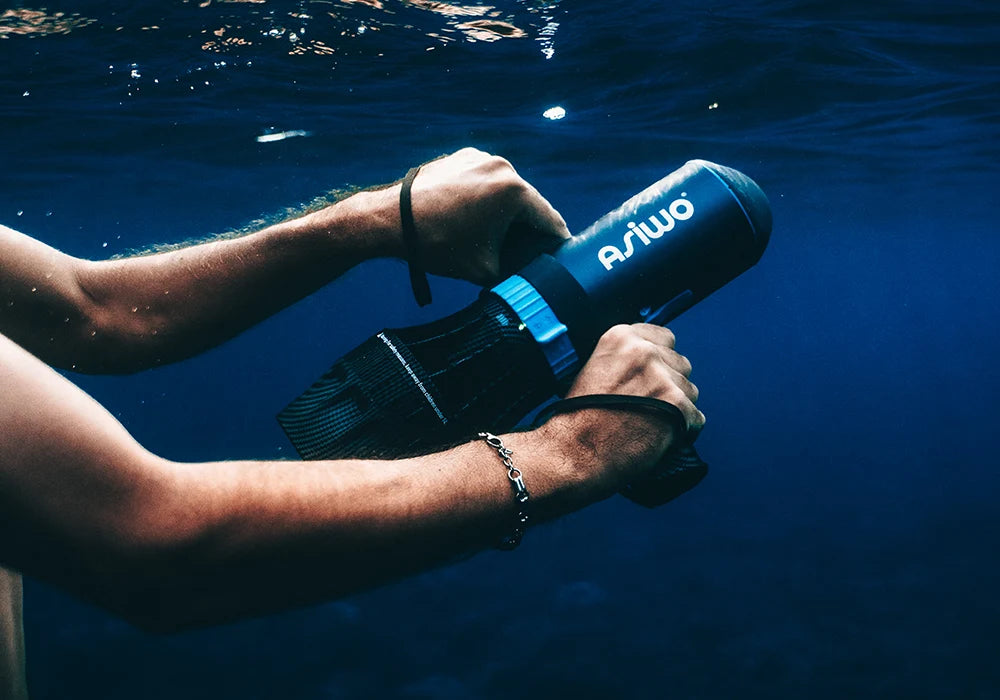




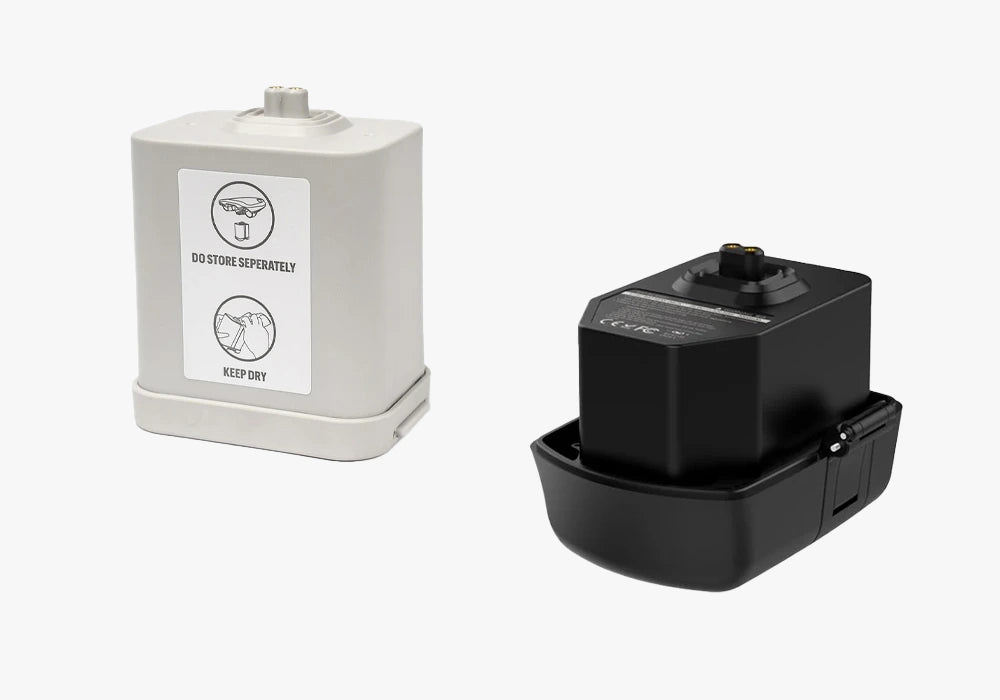




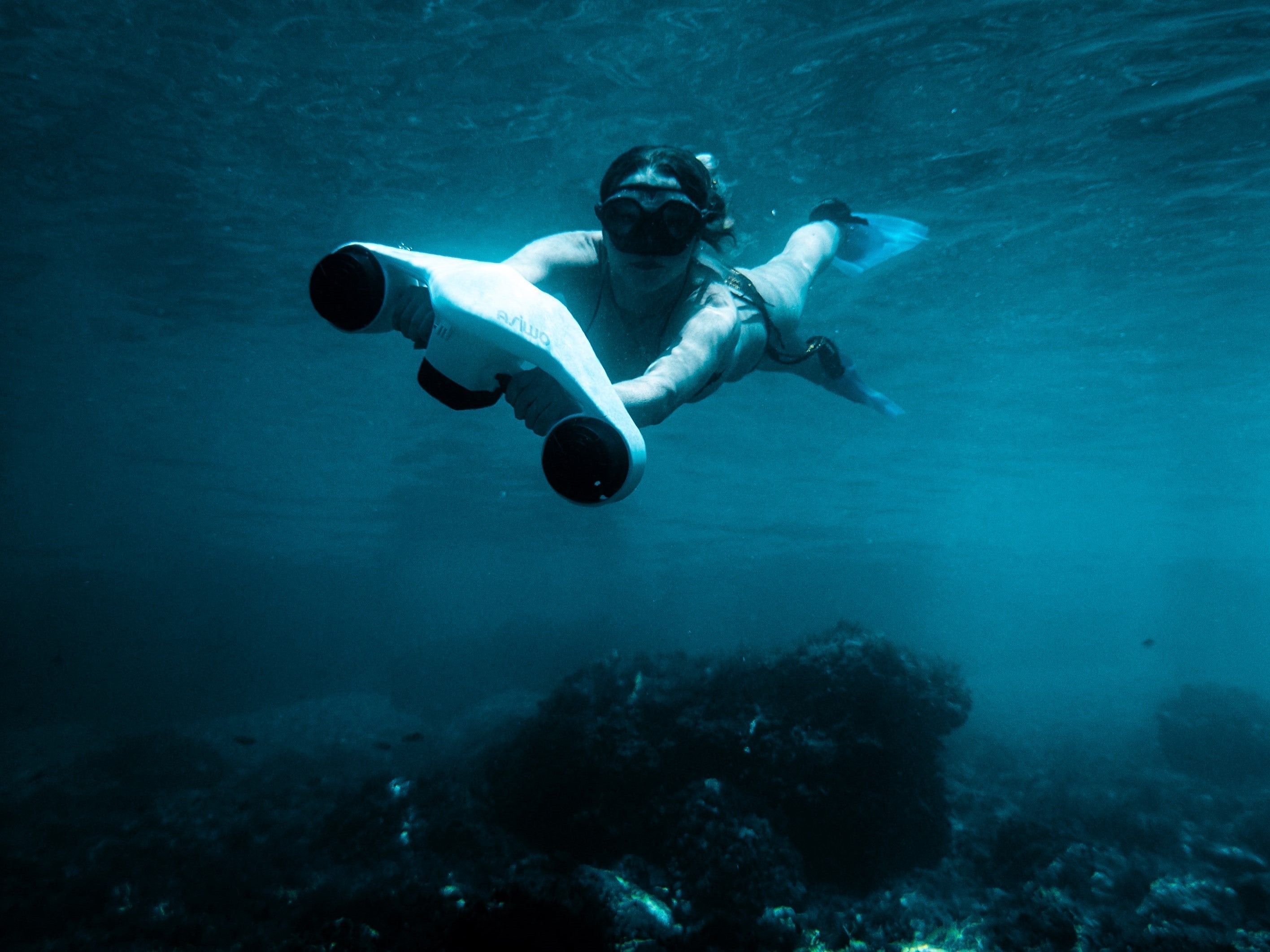
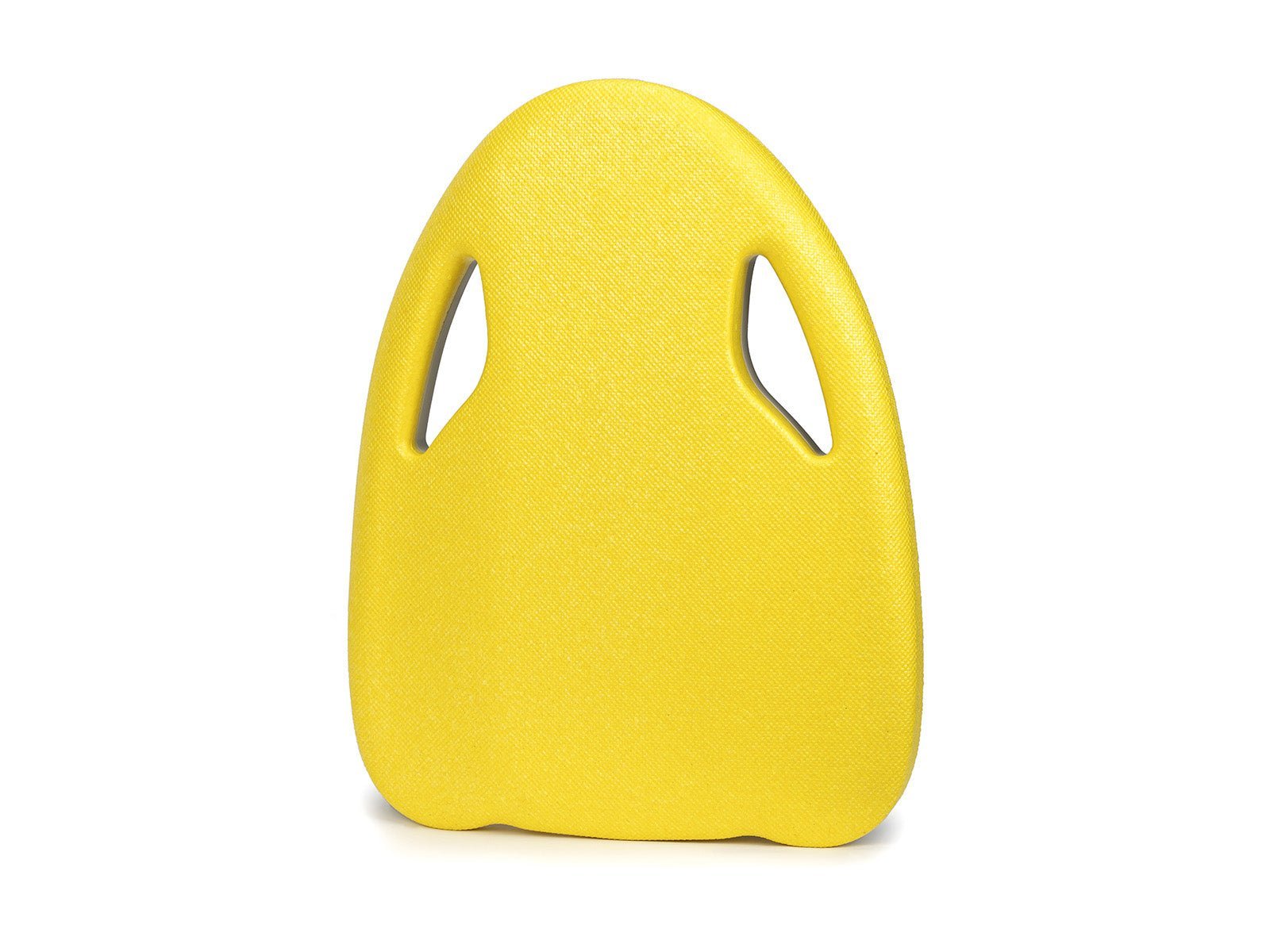

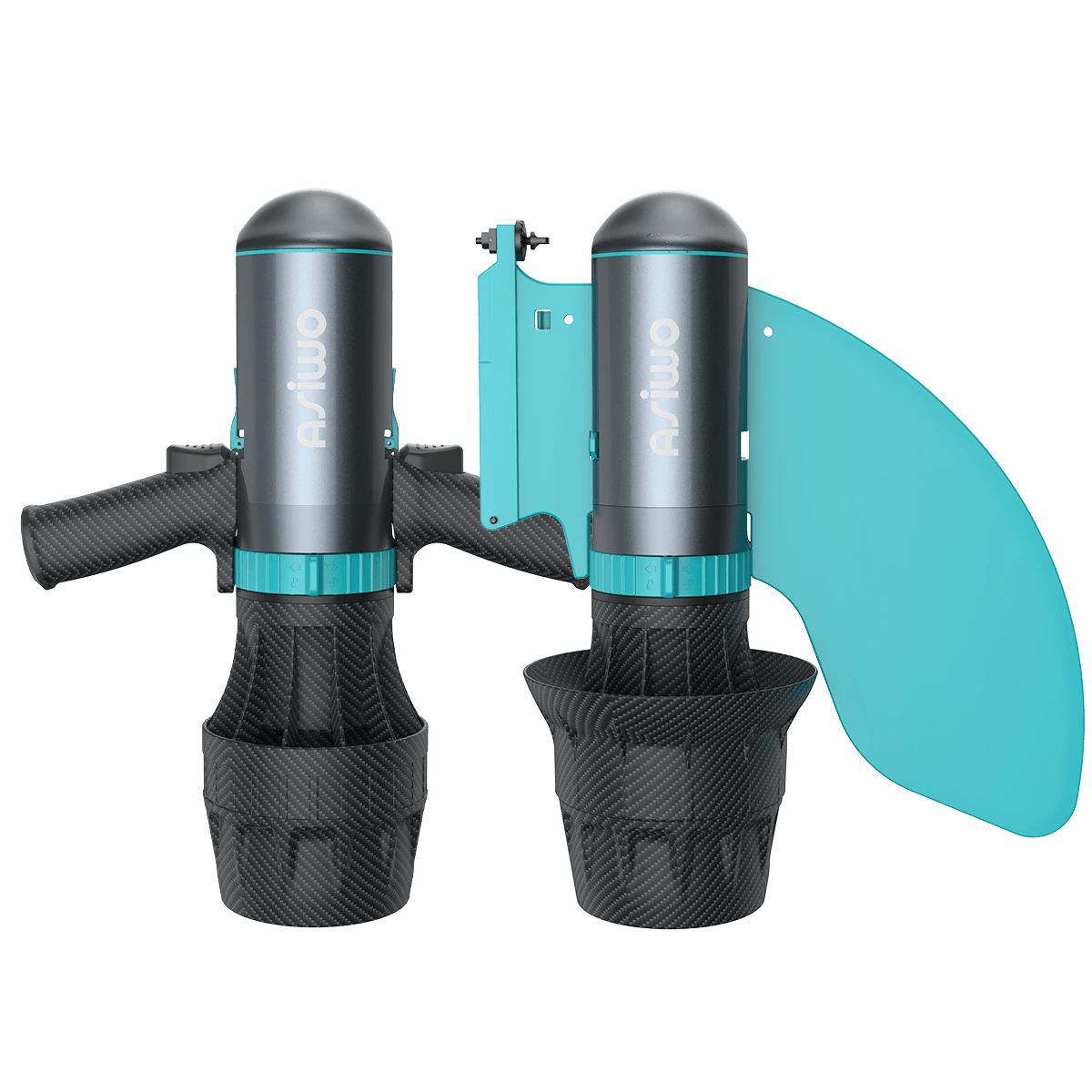




Laissez un commentaire